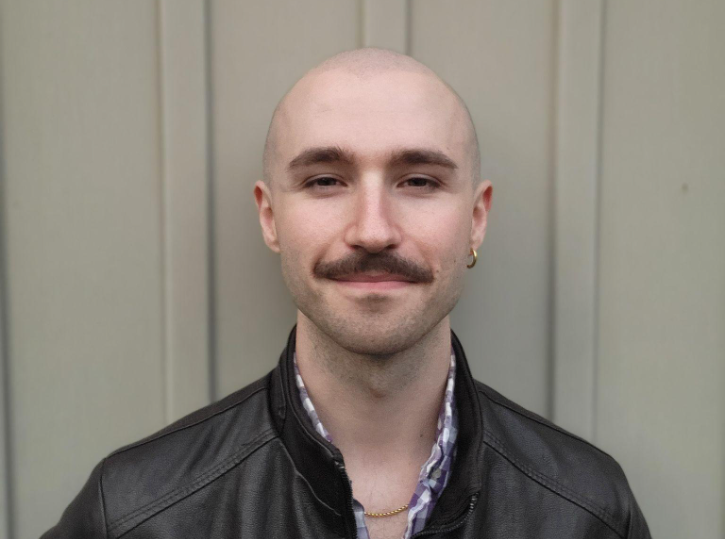When freshman Ryan Setow began his “Campherst” project for his first-year seminar, How Gay Culture is Made, he understood a part of his identity that he hadn’t before.
“Campherst” is a project by Tyler Clark, a graduate student and Ph.D. candidate in literature, who asks students to explore and present any aspect of the town of Amherst and its environment that could be classified as camp.
Camp is defined as an aesthetic style characterized by an appreciation for things that are appealing or entertaining due to their deliberate artifice, exaggeration and affectation. It has strong historical ties to LGBTQ+ culture.
“It made me feel like I’m trying to understand a part of myself that I’ve never understood before,” Setow said. “Through [the project], I’m starting to get a better understanding of what that aspect of queer celebration for camp really means. It’s nice knowing that I can feel secure in my own identity as a queer individual and to know … what it means to be camp.”
Clark specializes in Victorian literature and queer theory, focusing on the intersections of queer culture and camp. He also teaches two other introductory literature courses, The Gay Canon and Camp Literature.
Setow said he resonated with Clark’s study of camp because it bridges the historical strife within the queer community with personal acceptance and joy.
“It overall is a lot about acceptance and a marginalized community coming together and trying to recognize all the hardships they have been … but also reconciling that with the fact that there’s a lot to celebrate about being queer,” Setow said. “It’s about just being who you are.”
That internal acceptance and joy resonates with Clark, saying that his inspiration to immerse himself in academia came from his connection to literature and the various books and characters that he sees his own identity in — a sentiment that he seeks to share with his students.
“A lot of people when they get into an academic discipline, is a way to kind of identify themselves and learn more about themselves in that way,” Clark said, “Part of my work is introspection, which has challenges to that as well, because, my work feels like I’m basing it on my identity, but at the same time, that’s part of where I get a lot of the fun and especially the inspiration from within it.”
Clark explained camp as a love for the unnatural, often associated with queer culture. His thesis examines late 19th and early 20th-century novels popular among gay communities, highlighting their camp elements and how the concept of how camp has evolved over time.
“If you look at really old and original ideals of camp, you look at Oscar Wilde, Furbank or Benson, and a lot of the image is usually a British, white gay man,” Clark said. “And there’s the idea that camp originates from there, or that it has to be related in some way, to just gay culture. But that’s also not true … anyone can lay claim to it in some way, as long as, again, it relates to some aspect of queerness.”
Camp and queer culture has come a long way in the minds of both the queer and non-queer communities. Freshman Adelle Sheynkman said they joined Clark’s seminar to meet members of the LGBTQ+ community at UMass and were able to learn the significance of understanding culture in academia.
“I didn’t know a lot about queer culture coming in … I didn’t know that there was a name for camp,” Sheynkman said, also mentioning camp’s relation to drag culture. “It’s very nice to have a name to that. It feels very freeing [because] this is something that’s you kind of always feel a little bit ashamed of it, just underlying stigma because homophobia exists … But talking about it in an educational environment is very strange in a good way.”
With constantly changing definitions of community and subculture, especially on the internet, Clark said that the concept of camp, while minimal within the current climate, is an integral, deeply personal and evolving part of the queer community.
“If you Google camp today, there’ll be articles that will have headlines like, ‘Is camp dead?’ or, ‘There’s no such thing as camp culture anymore,’” Clark said. “To me, it’s all nonsense. It’s difficult the way that all subcultures are changing because of the internet and stuff these days, but overall, I don’t think camp is something that can truly ever die.”
Isabella Ishanyan can be reached at [email protected].



















